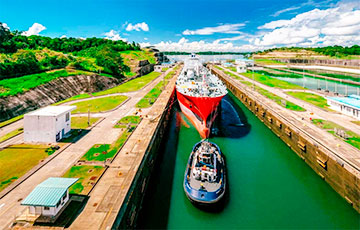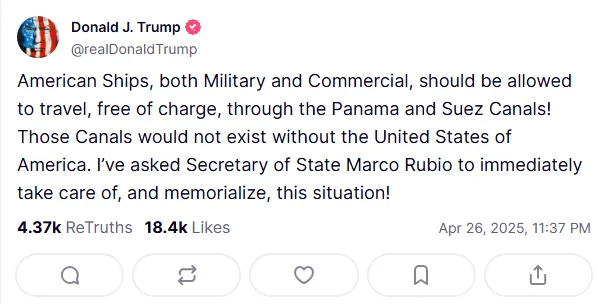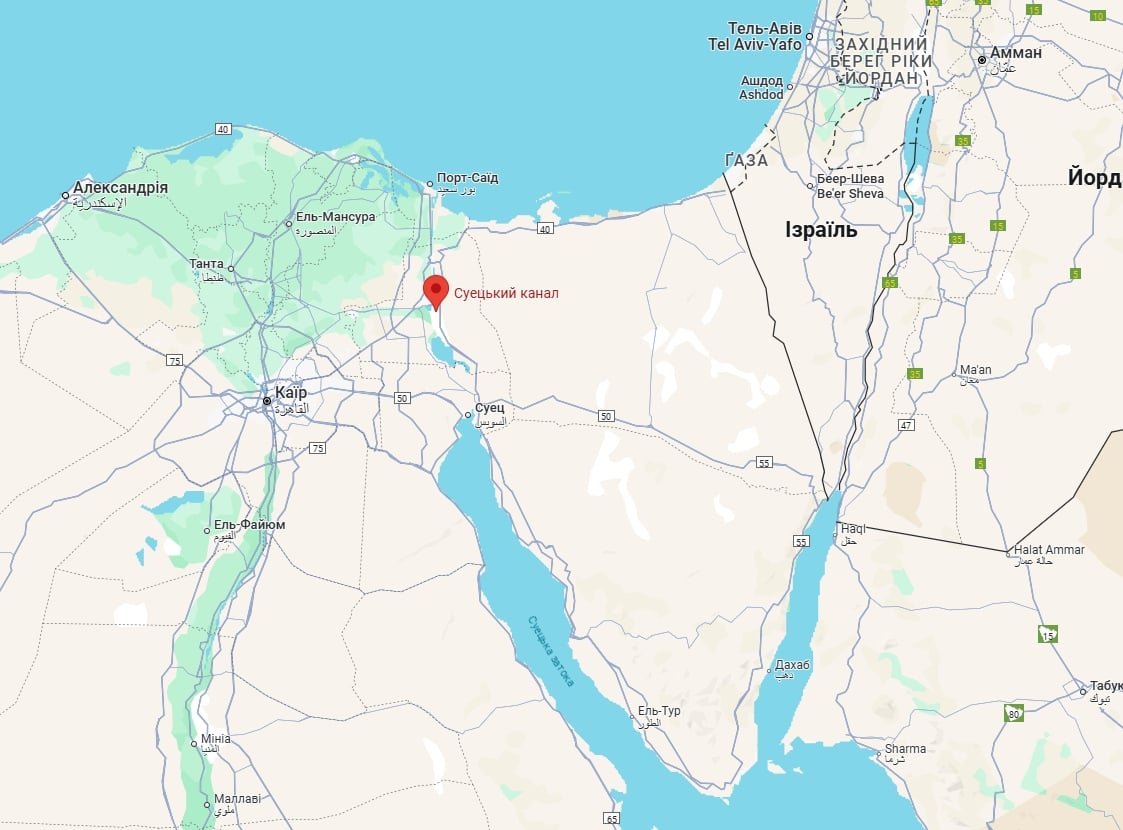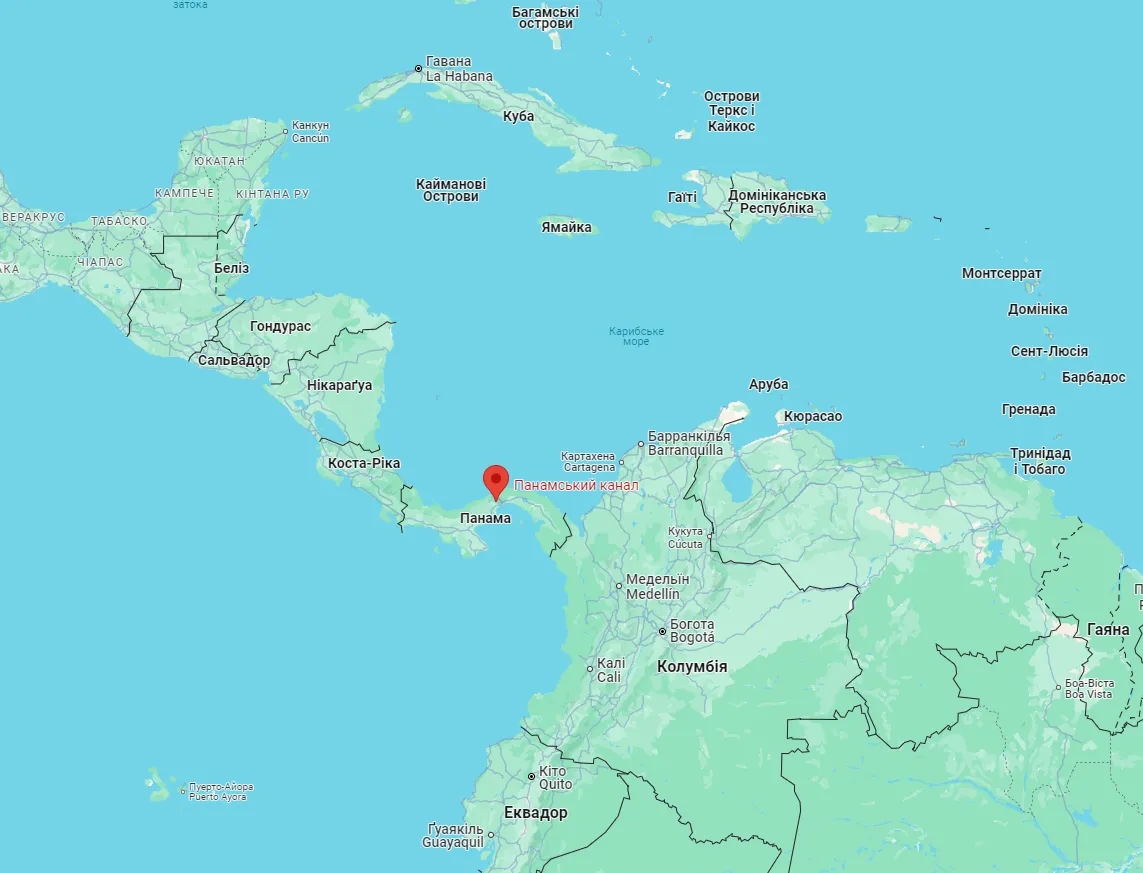‘Immediately!’: Trump Pressures For Free U.S. Ship Access Through Global Waterways
26- 27.04.2025, 9:05
- 12,968

Secretary of State Marco Rubio tasked with handling the situation.
President of the United States Donald Trump has raised new demands regarding the Panama and Suez Canals. According to him, American ships should be allowed to pass through these canals completely free of charge.
He emphasized that this applies to both military and commercial vessels. Trump made this statement on the social network Truth Social.
According to him, neither the Panama nor the Suez Canal would exist without the United States. The American president also stressed that he asked Secretary of State Marco Rubio to immediately address and resolve this situation.

"American Ships, both Military and Commercial, should be allowed to travel, free of charge, through the Panama and Suez Canals! Those Canals would not exist without the United States of America. I’ve asked Secretary of State Marco Rubio to immediately take care of, and memorialize, this situation!," Trump wrote.

The Panama Canal can accommodate up to 50 ships per day. Annually, about 14,000 ships pass through it, carrying around 280 million tons of cargo, accounting for up to 5% of the world’s ocean freight. Passage fees are officially collected by the Panama Canal Authority, a state agency of Panama. The fee for container ships is calculated based on their capacity, measured in twenty-foot equivalent units (TEU).
The fee for other vessels is determined based on their displacement. As of 2006, the fee was $2.96 per ton for the first 10,000 tons, $2.90 per ton for the next 10,000 tons, and $2.85 per ton for every subsequent ton. The cost for a ship carrying 10,000 sea containers could reach $300,000 or more.

The Suez Canal is located in Egypt and connects the Mediterranean and Red Seas. The canal zone is considered a boundary between two continents, Africa and Eurasia. The canal allows maritime traffic to pass between Europe and Asia without having to sail around Africa. Before the canal opened, ships had to unload their cargoes, which were transported overland from sea to sea.
The Suez Canal is operated by the Suez Canal Authority, a government agency established in Egypt in 1956 to replace the Suez Canal Company in the 1950s, which led to the Suez Crisis. After United Nations intervention, Egypt agreed to compensate the shareholders of the nationalized Suez Canal Company with millions of dollars. The transit fee for the Suez Canal can range from $400,000 to $700,000 per ship.











